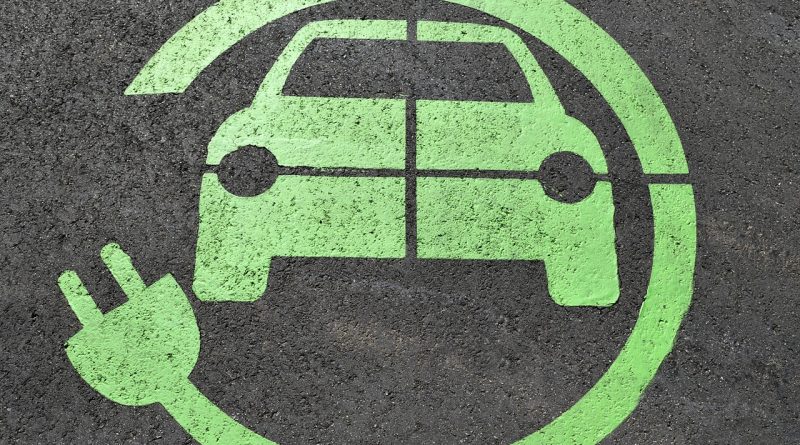A Case For Electric Cars: Part 4 – The Future
What does the future look like? Well, let me look into my crystal ball… (ok, now I lost you). The point is, if I knew that, I would be a pretty popular guy. Well, maybe. But let’s stick to the topic…
Most of us have read the headlines and ads: “Coming Soon….2010, 2011, 2012…” the Chevy Volt or the plug-in Prius, or the Chrysler and Jeep hybrids, or whatever. What do these all have in common? They are Plug-in Hybrids (PHEVs), which means that you can plug them in at night and run for as much as 40 miles without using a drop of gasoline. How about the Ford Focus Electric car or the E-Mini Cooper? These are pure electrics that have an electric-only range of 100 mi. or more. But then you either need to stop for a few hours while they recharge or you need a special facility to quick charge them or change out the battery packs. Then there are Neighborhood Electric Vehicles (NEVs). You know, the ones that look like glorified golf carts or oversize mailboxes, are limited to 25 or 35 MPH and have names like Zap or ZENN. They fill a narrow niche, but are still popular and available today from companies like Global Electric Motors (GEM) and Feel Good Cars.
And what about storage? Batteries are the main problem with electric cars, at present. To pack enough energy in a small, lightweight, stable package is the boon of many a developer, and has been since the days of Edison. But rest assured. There are hundreds, if not thousands of scientists, inventors and developers working on that problem as we speak. Trust me, it will not be long before we have cost-effective energy solutions that allow us to store an immense amount of energy in a small package. In many ways the technology exists in Lithium-Ion, Lithium-polymer, Nickel Metal Hydride, etc. But it takes mass production to get the costs down. Once again, the chicken-or-egg thing. The more electric cars built or converted, the lower the prices will be. The same goes for solar panels. As they become more efficient and less costly, we will see them more and more on the roofs of electric cars.
My opinion, the hybrid is a weaning device. It is not an alternative energy vehicle. We will grow out of them just as quickly as we grow out of toddler pants with the quick-change snaps. Today’s so-called hybrid electric vehicles run on gasoline. Period. Even plug-in hybrids are a phase-out product (albeit longer term). Once we get a taste of freedom from oil companies, we will never want to go back. Does that mean pure-electric is the answer? Maybe, but maybe not.
What about the Honda Civic CNG or the FCX/Clarity? Are these the future, or are they merely a crossover into the future? Until the laws change, the EPA is the roadblock to CNG and similar conversions. In any case, these still emit toxins into the air, granted, at a much lower rate than gasoline. Hydrogen power may be a smarter way to go. About all you emit when burning hydrogen is water vapor. But there is still a lot of development yet to be done in that area. Honda has made huge strides in development, but they are holding their cards close, maybe waiting to see what happens in the market first. But let’s talk about that for a minute…
If you look closely at the integration of the fuel cell in the Honda Clarity, you’ll notice that it’s actually an electric car. The hydrogen-powered fuel-cell generates electricity, which powers the electric motor that drives the vehicle. That’s the beauty of electric – it is efficient and versatile. So is the electric car a passing fad? Not hardly. I predict that because electricity can be utilized so efficiently and can be easily obtained from renewable sources, the electric car industry will drive all other alternative fuels (so-to-speak). The electric motor could end up being the platform on which all other alternative fuels depend. Even now, you can hook up a bio-diesel powered generator to your electric car to extend it’s range.
Right now, electric cars show the most potential for longevity and integration into the future of the auto industry. They have been proven effective in pure electric, hybrid and cross-platform implementation. To convert your car to electric today is not just a fad, it’s an investment into the future. The electric conversion today could literally become the hydrogen car of tomorrow.
I’ve decided electric is the way to go. Give it a try yourself and join hundreds of others who enjoy a smooth, efficient, peppy, zero-emissions ride. Go ahead and tackle that electric Porsche conversion you’ve been dreaming about. Check out my web site for some ideas on where to start.
If you want to get a jump start on converting your car, truck or SUV to electric, the most up-to-date EV conversion book was written by Gavin Shoebridge, the New Zealander who converted his own car from scratch with no prior experience and posted it on YouTube. You can read my EV book review. Or if you are serious about moving forward, you can go ahead and try Electric Conversion Made Easy.


